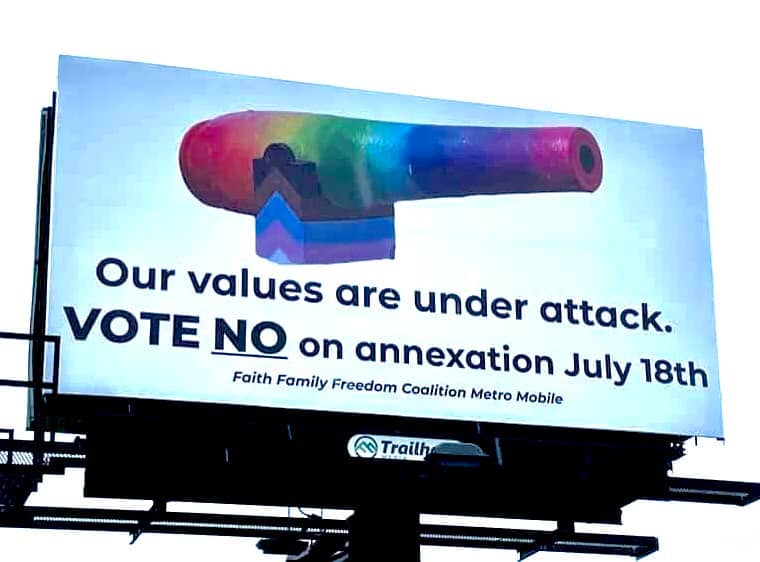Threat Psychology


There’s a problem with this billboard. Ok there are lots of problems with this billboard, but philosophically there is a fundamental issue with its reasoning. Values are defined as “a person's principles or standards of behavior; one's judgment of what is important in life.” Synonyms for values are convictions and morals. These are things that are personally held. No one but you can determine what you hold as a value. Because of the personal nature of values, they are quite a bit more subjective than rights, especially when it comes to human rights and the common good. Personally held values can be disagreed with, they can be unpopular, they can be the source of division and conflict, but they cannot be taken away. It is your human right to have freedom of belief and conviction. When someone says their values are under attack, what they often mean is, “My particular way of seeing this moral or behavioral issue is being disagreed with, and I don’t like it.” If you have a sense of your values being under attack, it likely means you live in a society that attempts to ensure equal rights, and ideally, that means your values remain your personal motivation, and not the law. If your values become law, how would you ever be able to know if someone’s behavior was based on personal conviction and not coercion. Wouldn’t it be preferable to let values remain personal so that it’s possible for people to make the choice to authentically align their behavior with their values and convictions?
A sign like this is inflammatory and serves to prop up a method of threat psychology that is intended to mobilize those who hold these values in common. The legislation of personally held values that are not in some way connected to human rights is directly contradictory to the governing principles of our democratic republic. Our laws, at their best, exist to ensure human rights. Our laws walk a difficult tightrope between ensuring individual rights and protecting the common good. On a personal level, you might agree or disagree with a law based on your personally held values, but the law itself does not exist to align with your values. It exists to ensure what we have agreed upon as human rights.
History is replete with examples of human rights being trampled on because people felt their personally held subjective values were under attack. Take for example The Crusades, The Holocaust, American Indigenous genocide, slavery, the Civil Rights Movement, the systemic oppression of women, and the list goes on and on. It’s important to note here that in all of these examples, there was a vocal and militant group of people who were driven to action by personally held values. At those times and in those places, there were large groups of people who, because of their values, felt as though they were doing the right thing. Hindsight shows us they were, in no uncertain terms, attacking and destroying the rights of their fellow humans.
Every step of the way in our country’s history, human rights have been threatened. We progress as a just and equitable society in as much as we learn to protect the rights of all. The issue this billboard attempts to deal with is a human rights issue. We have the freedom to exercise personal values in our individual lives. We have the freedom to talk about it and disagree. We do not have the freedom to limit human rights based on those personal values, beliefs, or convictions. You are free to vote based on your values and convictions, but to say that your values are under attack is false. This kind of billboard seems like inflammatory propaganda meant to mobilize a voter base with intent to legislate personally held values that ultimately strip humans of their rights.
